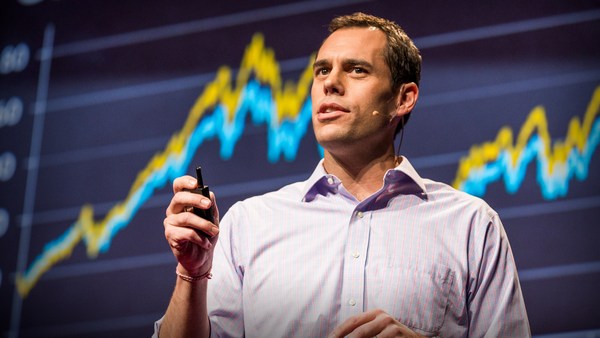In the 1600s the Dutch East India Company employed hundreds of ships to trade gold, porcelain, spices, and silks around the globe. But running this massive operation wasn’t cheap. In order to fund their expensive voyages, the company turned to private citizens– individuals who could invest money to support the trip in exchange for a share of the ship’s profits. This practice allowed the company to afford even grander voyages, increasing profits for both themselves and their savvy investors.
Selling these shares in coffee houses and shipping ports across the continent, the Dutch East India Company unknowingly invented the world’s first stock market. Since then, companies have been collecting funds from willing investors to support all kinds of businesses. And today, the stock market has schools, careers, and even whole television channels dedicated to understanding it. But the modern stock market is significantly more complicated than its original incarnation. So how do companies and investors use the market today?
Let’s imagine a new coffee company that decides to launch on the market. First, the company will advertise itself to big investors. If they think the company is a good idea, they get the first crack at investing, and then sponsor the company’s initial public offering, or IPO. This launches the company onto the official public market, where any company or individual who believes the business could be profitable might buy a stock. Buying stocks makes those investors partial owners in the business.
Their investment helps the company to grow, and as it becomes more successful, more buyers may see potential and start buying stocks. As demand for those stocks increases, so does their price, increasing the cost for prospective buyers, and raising the value of the company's stocks people already own. For the company, this increased interest helps fund new initiatives, and also boosts its overall market value by showing how many people are willing to invest in their idea.
However, if for some reason a company starts to seem less profitable the reverse can also happen. If investors think their stock value is going to decline, they’ll sell their stocks with the hopes of making a profit before the company loses more value. As stocks are sold and demand for the stock goes down, the stock price falls, and with it, the company’s market value. This can leave investors with big losses– unless the company starts to look profitable again.
This see-saw of supply and demand is influenced by many factors. Companies are under the unavoidable influence of market forces– such as the fluctuating price of materials, changes in production technology, and the shifting costs of labor. Investors may be worried about changes in leadership, bad publicity, or larger factors like new laws and trade policies. And of course, plenty of investors are simply ready to sell valuable stocks and pursue personal interests. All these variables cause day-to-day noise in the market, which can make companies appear more or less successful. And in the stock market, appearing to lose value often leads to losing investors, and in turn, losing actual value.
Human confidence in the market has the power to trigger everything from economic booms to financial crises. And this difficult-to-track variable is why most professionals promote reliable long term investing over trying to make quick cash. However, experts are constantly building tools in efforts to increase their chances of success in this highly unpredictable system.
But the stock market is not just for the rich and powerful. With the dawn of the Internet, everyday investors can buy stocks in many of the exact same ways a large investor would. And as more people educate themselves about this complex system they too can trade stocks, support the businesses they believe in, and pursue their financial goals. The first step is getting invested.





